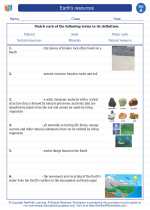Lungs
The lungs are an essential part of the respiratory system, responsible for bringing in oxygen and removing carbon dioxide from the body. They are located in the chest, protected by the rib cage.
Structure of the Lungs
The lungs are made up of soft, spongy tissue and are divided into sections called lobes. The right lung has three lobes, while the left lung has two lobes. The main function of the lungs is to facilitate the exchange of oxygen and carbon dioxide during the process of breathing.
Function of the Lungs
When we inhale, the diaphragm and intercostal muscles contract, causing the chest cavity to expand. This creates a negative pressure, allowing air to be drawn into the lungs. The oxygen from the inhaled air is then transferred into the bloodstream, while carbon dioxide is removed from the bloodstream and exhaled during the process of exhalation.
Keeping the Lungs Healthy
It's important to keep the lungs healthy by avoiding smoking and exposure to secondhand smoke, as well as maintaining a clean and pollution-free environment. Regular exercise and a balanced diet also contribute to overall lung health.
Study Guide
- What is the main function of the lungs?
Answer: The main function of the lungs is to facilitate the exchange of oxygen and carbon dioxide during the process of breathing. - How many lobes does the right lung have?
Answer: The right lung has three lobes. - What happens when we inhale?
Answer: When we inhale, the diaphragm and intercostal muscles contract, causing the chest cavity to expand and air to be drawn into the lungs. - How can we keep our lungs healthy?
Answer: We can keep our lungs healthy by avoiding smoking, maintaining a clean environment, exercising regularly, and having a balanced diet.
◂Science Worksheets and Study Guides First Grade. Earth's resources

 Worksheet/Answer key
Worksheet/Answer key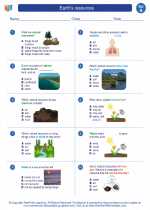
 Worksheet/Answer key
Worksheet/Answer key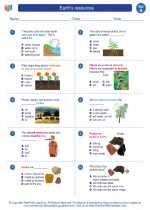
 Worksheet/Answer key
Worksheet/Answer key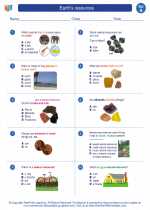
 Vocabulary/Answer key
Vocabulary/Answer key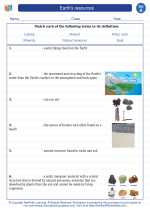
 Vocabulary/Answer key
Vocabulary/Answer key